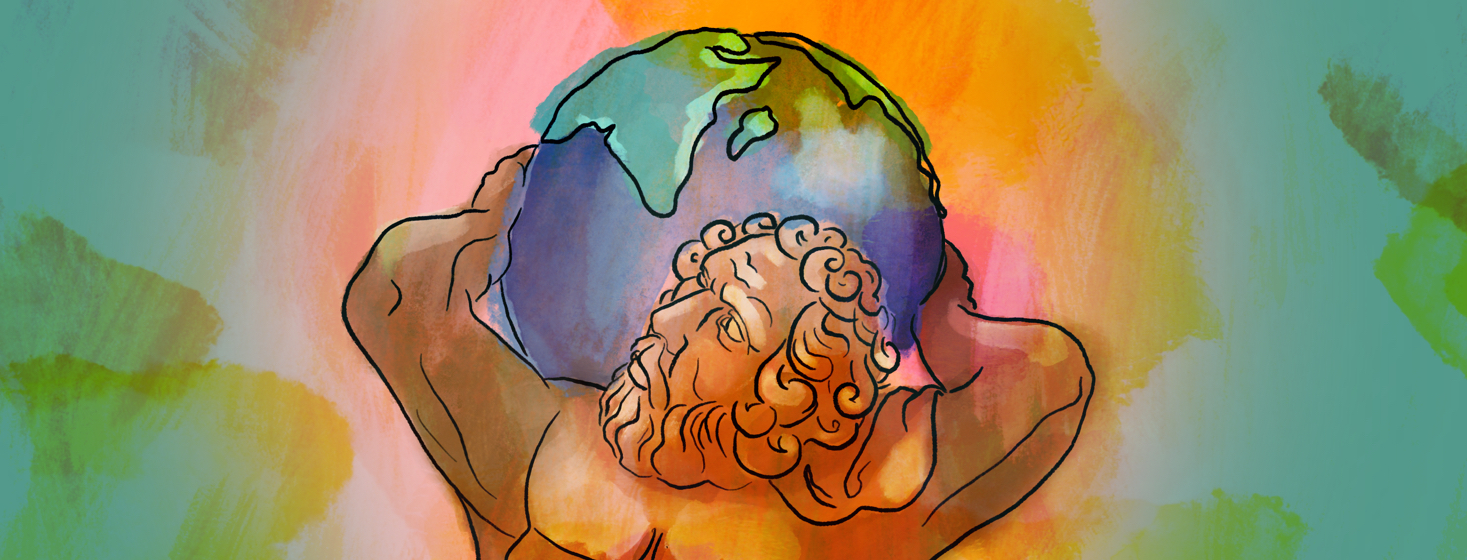A Look At The Mythology of the Spine
I read an interesting bit of mythology around the spine the other day, as I delved into one of my many "Wikipedia holes" — I have a tendency toward late-night interweb journeys, combing the ether for interesting tidbits and facts, often around health and the body.
Did you know that the very first cervical vertebra of the spinal column, located just under the skull, is called Atlas? Atlas is a Hemitheos, or a person who is mortal who can undertake great feats, its name stemming from ancient Greek mythology.
The story goes...
The story goes that Atlas was punished by Zeus by being forced to hold up the heavens on his shoulders forever. Of course, this was after Atlas fought with the Titans against Zeus in the Titanomachy, a 10-year battle. And so, in eternal punishment, Atlas has held up the firmament from the Atlas Mountains.
The Atlas of our bodies holds up so much as well, with our heads weighing several pounds. It is the beginning point of the spine, that holds our bodies together. In a sense, we are the firmament, and the spine is Atlas himself. It is this very strength that has gained Atlas the moniker, Atlas Telamon, or enduring Atlas.
I thought of my own spine
When I delved into the mythos of Atlas I could not help but think of my own spine — my own Atlas, and its enduring nature. I could not help but see it as some form of my own mythology — the story of treatment, medication, exercise, suffering, battle, and resilience.
When I think of AS I think of pain and unfairness. I think of the deep injustice (and inevitability) that is human suffering. I think of what the years ahead might hold for me. But when I think of Atlas, in his battle and in his punishment, I am reminded that there is beauty in the endurance in the struggle. It isn't fair, it is not right, and pain shouldn't be the path toward enlightenment — but Atlas asks me to stop and consider my own strength.
Maybe our spines hold things
Maybe, in a way, we are holding up our own heavens? In our spines, which are heavy and brittle and tired, maybe we also hold up empathy and patience and advocacy and love? Maybe there's something to the mythos reflecting back at us.
Maybe there's a reason so much esoterica centers on the spine. Consider the chakras, yoga, and even Jungian psychology. Our spines are considered sacred, and yet everyday people with AS face an internal war against the vertebra. What does it all mean? Can we make meaning from the struggle and journey?
Maybe I've fallen too deeply down the rabbit hole? Either way, it's all food for thought.

Join the conversation